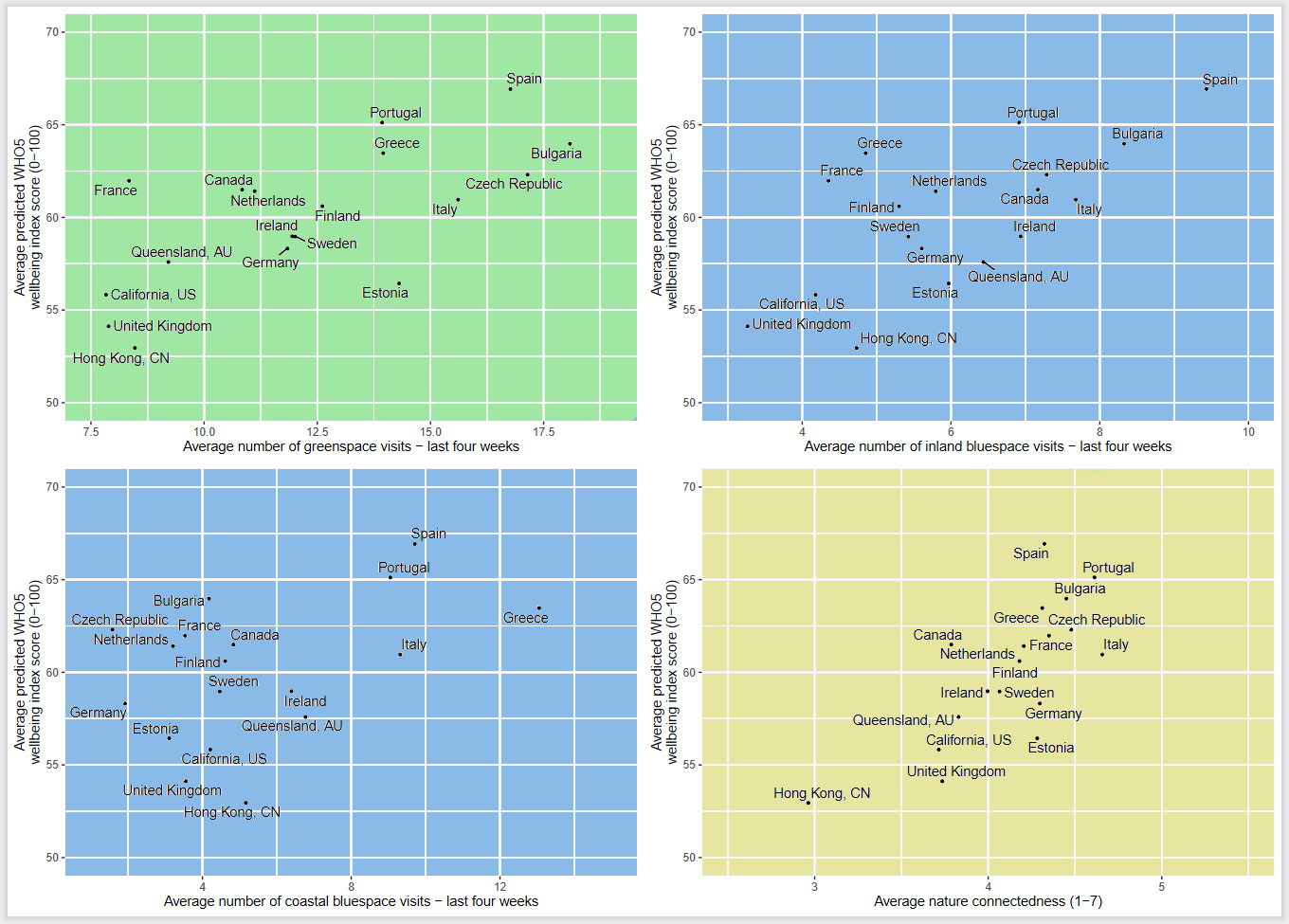Happiest countries are those most connected to nature
Living near, recreating in, and feeling psychologically connected to, the natural world are all associated with better mental health, but many exposure-related questions remain. BlueHealth researchers have published a study based on the 18-country BlueHealth International Survey (BIS) on how mental health is related to living in and visiting different natural environments.
Using data from the BIS they explored associations between multiple measures of mental health (positive well-being, mental distress, depression/anxiety medication use) and: (a) exposures (residential/recreational visits) to different natural settings (green/inland-blue/coastal-blue spaces); and (b) nature connectedness, across season and country.
The researchers found that people who live in greener/coastal neighbourhoods reported higher positive well-being, but that this association largely disappeared when controlling the analyses for recreational visits. Frequency of recreational visits to green, inland-blue, and coastal-blue spaces in the last four weeks were all found to be positively associated with positive well-being and negatively associated with mental distress (better mental health). Whereas associations between mental health and greenspace visits were relatively consistent across seasons and countries, relationships with blue space visits were found to be markedly more heterogeneous.

A measure of the degree to which people feel connected to nature was found to be positively associated with positive well-being and negatively associated with mental distress and was, along with green space visits, associated with a lower likelihood of using medication for depression. By contrast inland-blue space visits were associated with a greater likelihood of using anxiety medication. Results highlight the benefits of multi-exposure, multi-response, multi-country studies in exploring complexity in nature-health associations.
This paper provides significant new insights into the relationships between mental health, residential and recreational exposure to both green and blue spaces, and into the feelings of connectedness that people have with the natural world. By collecting data in four seasonal waves, across eighteen different countries/regions allowed the researchers to make far more nuanced conclusions than have been possible in previous studies.
White, M.P., Elliott, L.R. Grellier, J., Economou, T., Bell, S., Bratman G.N., Criach, M., Gascon, M., Ojala, A, Roiko, A., Lima, M.L., Lohmus, M., Nieuwenhuijsen, M., Schultz, P. W., van den Bosch, M.A., & Fleming, L.E. (2021). Associations between green/blue spaces and mental health across 18 countries. Scientific Reports, in press